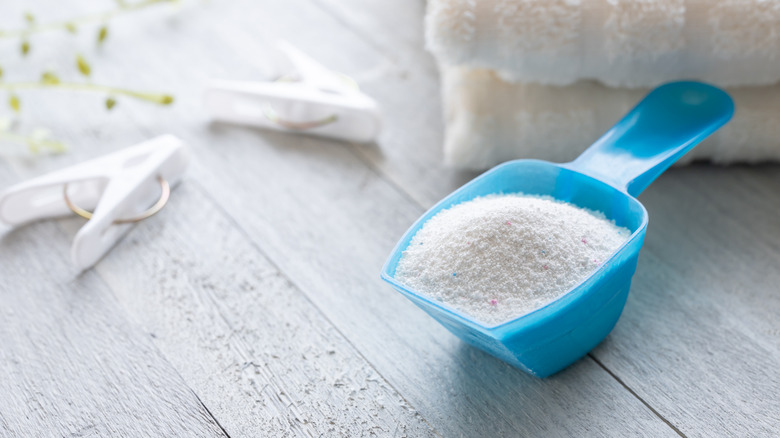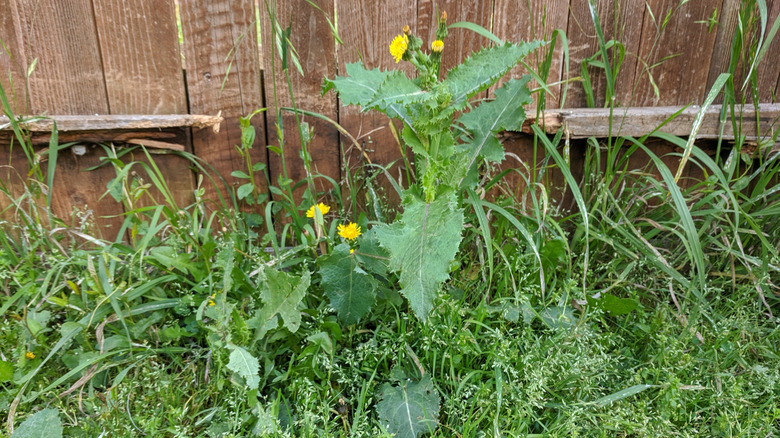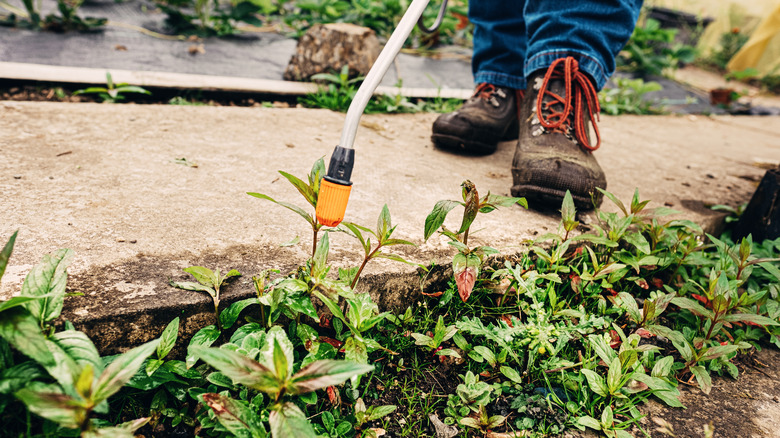Is Using Laundry Detergent To Kill Weeds In Your Yard A Good Idea?
Laundry detergent certainly has the ability to fight off ground in stains from the baseball field and even gently remove spit up from a bib. What many don't realize is that it may actually help with weed control in your garden as well. The use of powdered laundry detergent in the lawn may help to destroy weeds and limit moss growth as well. However, it's not always a good idea to add laundry detergent to your landscaping.
The problem with the use of laundry detergent in the lawn or garden is that it's typically going to require the addition of chemicals to your landscaping, which is never really ideal for outdoor spaces. While using laundry detergent as a weed treatment is a way to use up old detergent, it's essential to consider the implications of doing so on the rest of your garden and landscaping.
If you want to use detergents like this to kill weeds, you must do so in a very targeted fashion, treating just the area desired and protecting the water sources and animals in the area from chemicals. The type of laundry detergent you use can also play a role in whether this method is truly safe. Even if you are using home remedies designed for natural weed killing, you need to be careful about what you use or avoid it altogether.
What you use matters
Typically, laundry detergents have differing ingredients, some of which can be problematic to pets, wildlife, and groundwater in general. Some products contain bleach, others nonylphenol ethoxylates, which can cause endocrine disruption and impact health in people and pets. Some scented laundry detergents contain surfactants that can cause health risks. Other products may contain toxins that could be carcinogens.
If the soap that you are using contains ingredients you cannot recognize, look them up. Determine if they are worrisome to pets and groundwater before applying large amounts of this product to your lawn. Many of these detergents will kill pests while also helping to control weed growth. However, not all products offer the same level of safety, and some will cause damage to the delicate ecosystem present in your grass.
One example of this is borax, which is often encouraged as a weed control option. While using small amounts of it to spot-treat weeds may not cause much harm to the environment, it will damage some of the grass nearby along with the weed. More so, if too much of it is used, it will cause damage to the grass, soil, and even the plants and animals near the treatment area. Some recommendations encourage ample dilution of soaps like this to as little as 10 ounces to 2.5 gallons of water and then applying that to a space of 1,000 square feet or more to minimize treatment risks.
Finding the balance when using laundry detergent for weeds
Your first step needs to be a careful consideration of what's in any laundry detergent before using it. A good rule for them is to consider how greywater may be used to water lawns. Greywater, which is water that comes from the washing machine after cleaning your clothing, can be used to water your lawn if it is used on well-established plants and spread over a large area. If you try to use it just on a small container plant and use too much, it's going to be a dangerous level of detergent.
Your goal with weed control, though, is to damage the plants so they die. As a result of that, you may want to consider using a higher concentration in a targeted area. For example, if you have weeds popping up through your patio pavers, you may find that applying a laundry detergent mixture to those specific areas could help to rid the weed problem. Like with any homemade weedkiller, choose the ingredients based on the type of weed and then apply it directly to the weeds themselves, avoiding grass.
At the same time, always be mindful of wildlife, pets, and children. Avoid applying any type of soap, detergent, or chemical-based product where they can get into them and ingest them. It's always best to use the most natural products possible, treat weeds using herbicides that are safe for your area, and protect the area from accidental poisoning.


